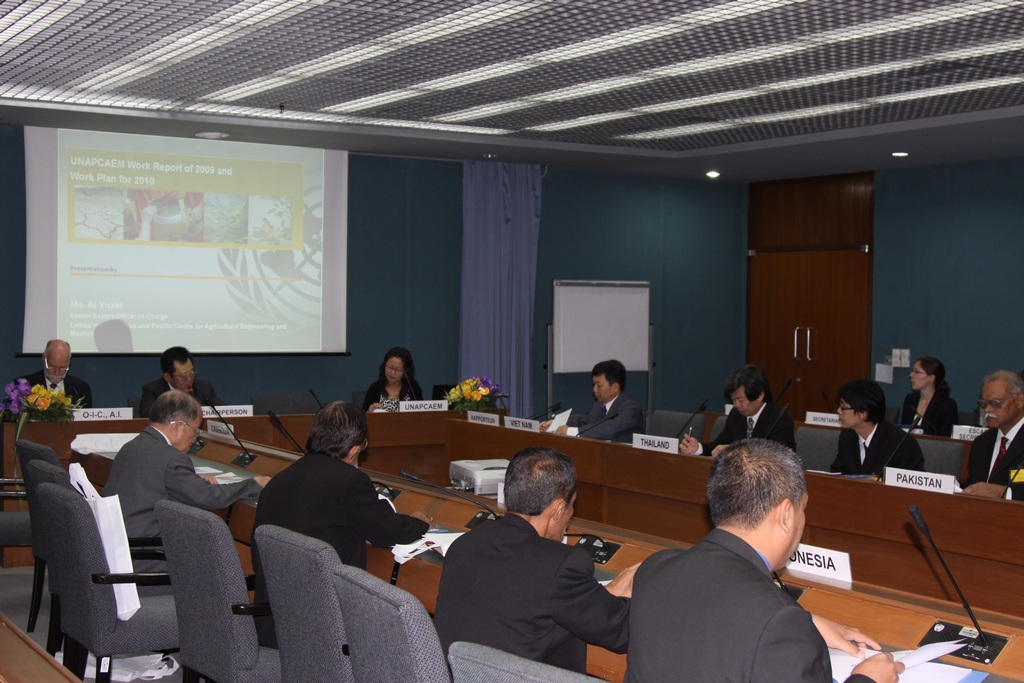An Agricultural Future that Stresses Sustainable Livelihoods and Protects Natural Resources Tops the Agenda of the 5th Session of the Governing Council of UNAPCAEM
 Agricultural experts from around the Asia and Pacific region have endorsed the latest programme of work as laid out by the 5th Governing Council (GC) of UNAPCAEM to rapidly shift to agricultural solutions that sustain the environment and enhance well-being of rural livelihoods while addressing food insecurity.
Agricultural experts from around the Asia and Pacific region have endorsed the latest programme of work as laid out by the 5th Governing Council (GC) of UNAPCAEM to rapidly shift to agricultural solutions that sustain the environment and enhance well-being of rural livelihoods while addressing food insecurity.
Based on discussions held by the Untied Nations Asian and Pacific Centre for Agricultural Engineering and Machinery’s (UNAPCAEM) 5th Technical Committee (TC) meeting held earlier this year in Los Baños, the Philippines, the 5th GC has reviewed, provided critical direction and set UNAPCAEM on a more sustainable agricultural course that greatly enhances South-South cooperation in the Centre’s programme of work for the next biennium 2010-2011.
Dr. Noeleen Heyzer, Under-Secretary-General of the United Nations and Executive Secretary of ESCAP, stressed in her opening statement that the Asia Pacific region is still home to the largest number of food insecure people in the world, and it is of utmost importance that future policy and programmes simultaneously promote sustainable livelihoods, address climate change, and contribute to food security.
Dr. Heyzer said there is a need for greater regional South-South cooperation and the development and transfer of technologies when responding to these challenges. As a subsidiary body of ESCAP, UNAPCAEM has the mandate to help member countries more effectively address the compounding challenges posed by food insecurity and climate change through technology transfer and capacity building programmes.
The 5th GC of UNAPCAEM was held on 14-15 December 2009 at UNCC in Bangkok. Eight 5th GC member countries participated in the meeting: Cambodia, China, India, Indonesia, Malaysia, Pakistan, Thailand, and Viet Nam. At the 5th GC, GC members also reviewed the work report of 2009 and work plan for 2010, as well as financial and administrative status of the Centre.
